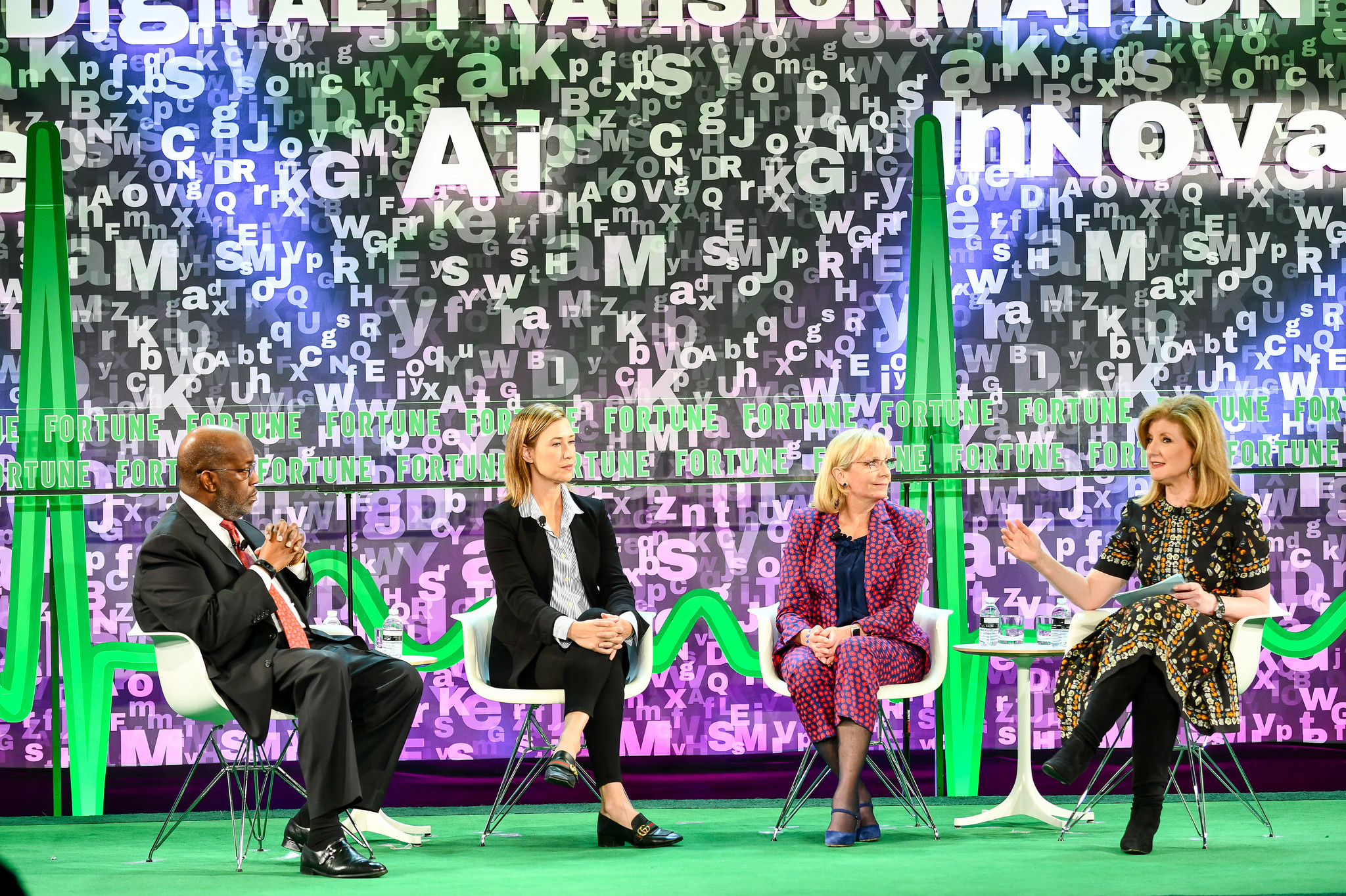Mental health and substance use disorders are the world’s leading cause of disability worldwide, according to the World Health Organization. Globally, over 300 million people suffer from depression alone.
At the 2018 Fortune Brainstorm HEALTH conference in Laguna Niguel, CA on Monday, a panel of experts–Deborah DiSanzo (general manager of IBM Watson Health), Amy Powell, (president of Paramount Television and Digital Entertainment), and Bernard J. Tyson (chairman and CEO of Kaiser Permanente), moderated by Arianna Huffington (founder and CEO of Thrive Global)–expanded on why we need to change how we think about, treat, and discuss mental health conditions.
“In the past 45 years, suicides have increased 60 percent worldwide, and every day the opioid epidemic is getting worse,” said Huffington. “And yet, we continue treating mental health, with a few exceptions […] as though it’s somewhere in the corner by itself.”
The conversation returned multiple times to the effects of technology on mental health, especially among young people. “As well as celebrating what technology makes possible, we are becoming much more aware of the unintended consequences,” said Huffington. Studies have shown that more time on social media leads to greater levels of unhappiness in teens.
But the discussion also touched on the various ways social media can be used to improve society. In certain areas of Italy, for instance, IBM Watson observed positive outcomes where social media actually helped reduce loneliness among the elderly. IBM Watson has also partnered with Tiatros, an AI platform, to bring together veterans with PTSD and create personalized treatment plans.
Technology has also changed the way we tell and consume stories. When Paramount produced the controversial Netflix series 13 Reasons Why, it fueled a nationwide discussion about teen suicide, mental health, and how they relate to technology use. “We wanted kids to realize that their life is so much bigger than this one moment that they were experiencing vis-a-vis social media,” Powell explained. For seasons two and three, Paramount worked with Netflix to provide a platform where viewers could connect with local resources while streaming the show. “We’re really trying to create a connective one-on-one dialogue between somebody who’s having a crisis of whatever level that might be and somebody who’s resourceful to be able to help them immediately,” Powell said. “That feels like our responsibility as storytellers.”
Kaiser is challenging the traditional approach by bringing behavioral health services into primary care. “If you stop and think about it, we have disconnected the head from the body in how we take care of mental health illnesses,” Tyson said. “It’s our hope that sooner or later, we will start talking about mental health as easily as we talk about diabetes and cancer. All towards making it okay to say ‘I’m not okay today.’”
As for social progress in helping people create a healthier relationship with technology, Tyson is already beginning to see a positive shift: “You tell us to put the phone in the other room, then we move into that other room,” he joked, referencing Huffington’s mission at Thrive Global. “But we’re making progress.”
Thrive Global will continue to cover key sessions from Fortune Brainstorm HEALTH 2018. You will find this year’s agenda here, and you can livestream many of the conference’s sessions here.


